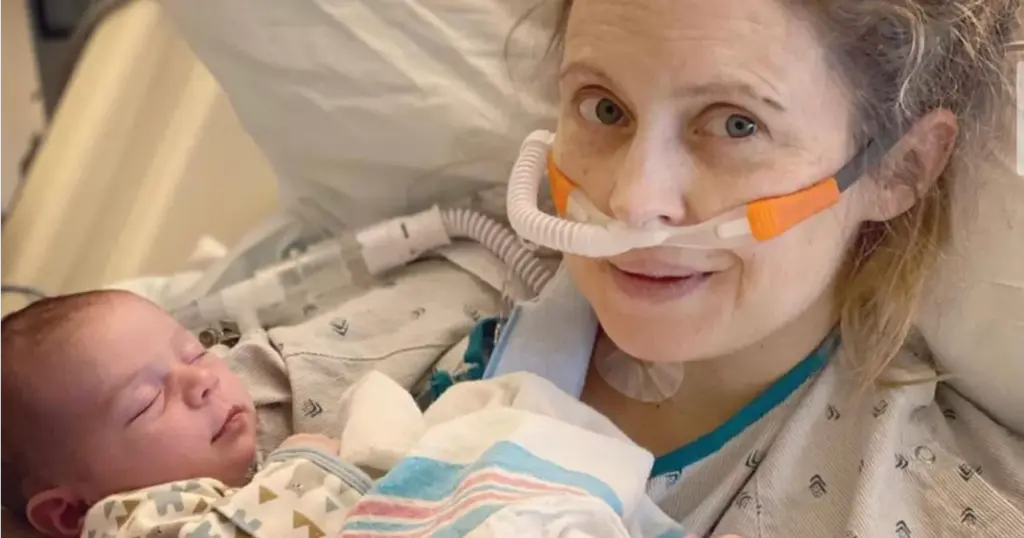
A new mother, Taylor Coffman, recently shared her harrowing experience of life-threatening complications that arose after a C-section. Her struggle included multiple surgeries, organ failure, and the emotional toll of being separated from her newborn daughter. The story highlights the uncertainties and challenges she faced while hospitalized, shedding light on a critical aspect of maternal health.
Coffman’s ordeal began four weeks after the birth of her child when she underwent a C-section. Shortly after the delivery, she was rushed into another surgery as her vital signs rapidly declined, and she experienced severe bleeding. The chaos left her unable to hold her baby, and it was four days before she finally met her daughter—a moment overshadowed by the medical crisis that engulfed her.
During her month-long hospitalization, Coffman faced numerous challenges, including three rounds of ICU intubation, heart and kidney failure, and severe complications such as pneumonia and sepsis. Her husband, Zach, struggled at home with their newborn baby while managing the stress of his wife’s deteriorating condition. A doctor had even informed him during the night that Taylor might not survive.
As Coffman was moved in and out of the ICU, she found herself overwhelmed by a rotating cast of specialists. Each day brought new information and varying opinions about her condition, leading to frustration and confusion. She described it as akin to an absurdist play, where the same conversation replayed without resolution.
Realizing she had to take control of her recovery, Coffman began to actively engage with her medical team. She encouraged them to improve their communication and established a text chain among her doctors to consolidate information. “If I was going to live, I’d have to project-manage my recovery,” she asserted. This proactive approach may have been a turning point in her treatment.
Coffman’s diagnosis eventually pointed to atypical hemolytic uremic syndrome (aHUS), a rare condition that can be triggered by pregnancy. This discovery came amidst a series of harrowing symptoms that included toxic encephalopathy and aphasia, resulting from her failing kidneys. Despite the severity of her situation, she remained resolute in advocating for herself.
While grappling with her illness, Coffman noted a concerning trend in healthcare. A study from 2009 indicated that middle-aged women presenting with heart disease symptoms similar to men were twice as likely to be misdiagnosed with a mental health condition. She emphasized that patients should not only trust their doctors but also actively participate in their own care.
Today, Coffman describes her current health as stable by the standards of managing a chronic rare disease. After nine months of dialysis, her kidney function has partially returned, leaving her with stage 3 kidney disease. She receives infusions every eight weeks to manage her aHUS and is focused on being a mother to her active toddler.
Reflecting on her experience, Coffman stresses the importance of patient empowerment and communication within the healthcare system. “I learned the importance of advocating for my needs and, most crucially, to trust myself when something is wrong,” she explained. Her story serves as a poignant reminder of the vital role patients play in their health journey, particularly in times of crisis.
Coffman’s narrative was originally published in February 2024 and is being featured as part of HuffPost Personal’s “Best Of” series, illuminating the often-overlooked issues surrounding maternal health and patient advocacy.







